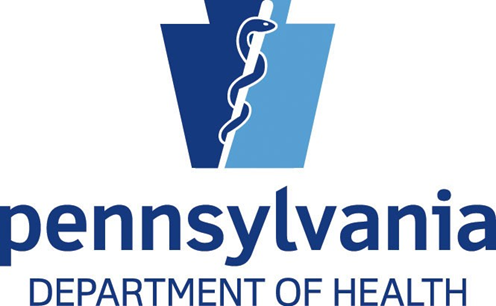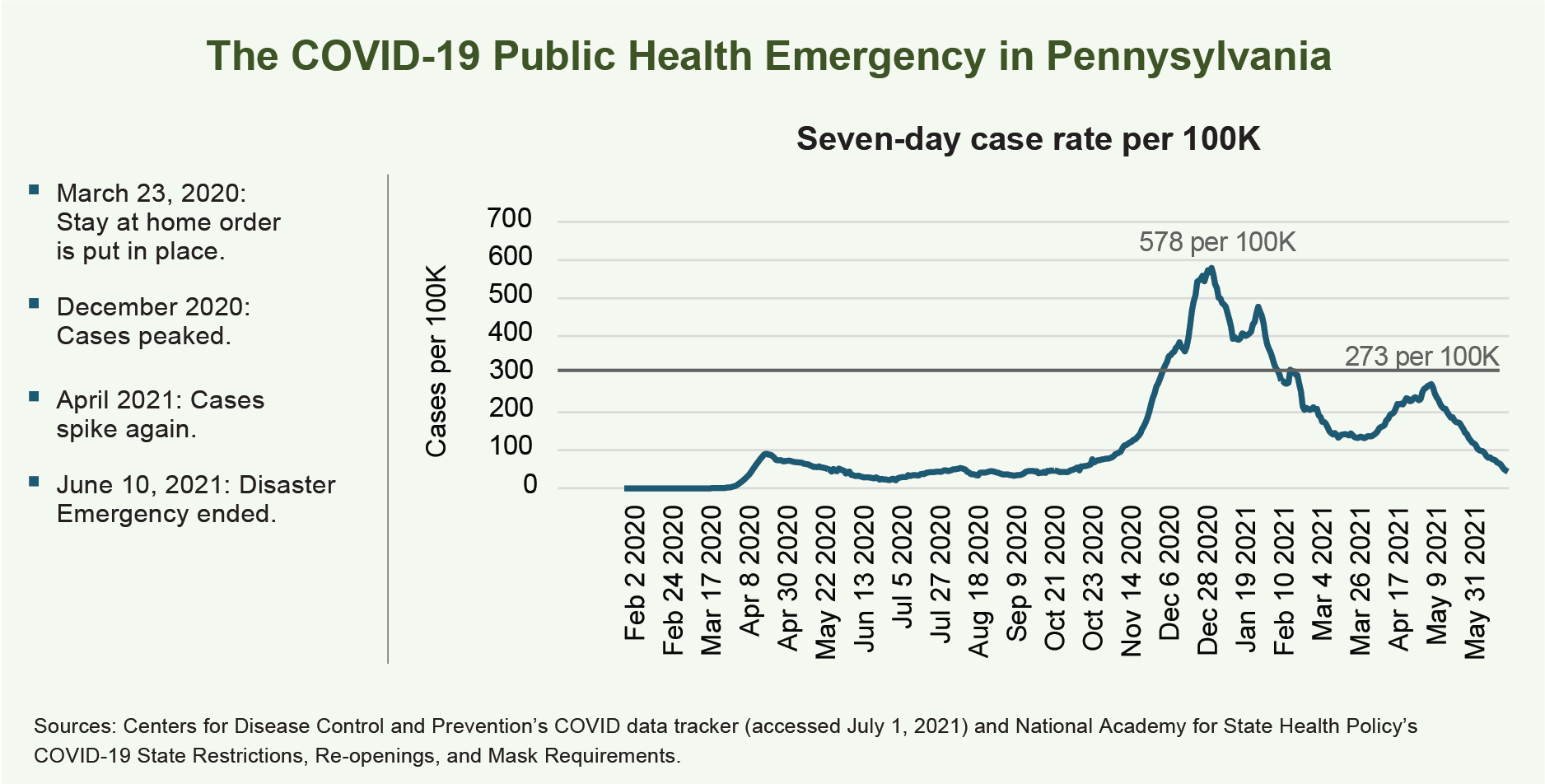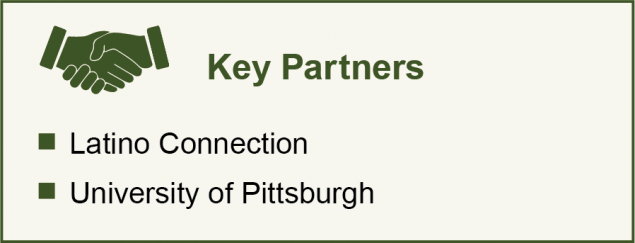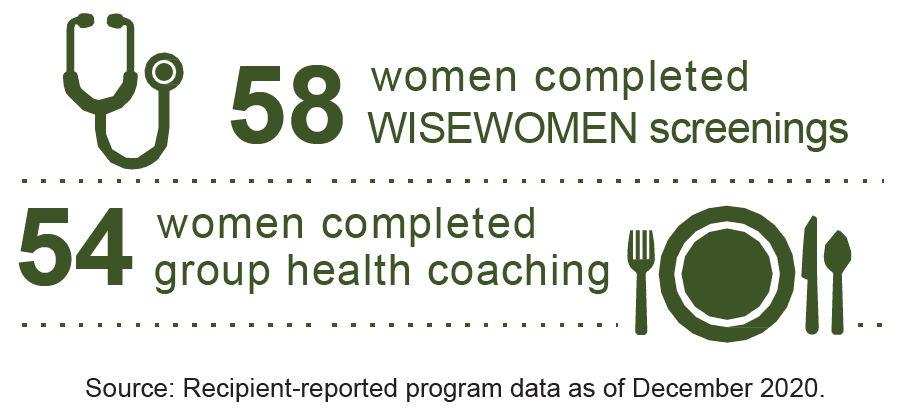Reaching Latina Women Through Community Health Workers in Pennsylvania
WISEWOMAN Innovation Spotlight

Pennsylvania’s WISEWOMAN program has an innovative approach that uses bilingual community health workers (CHWs) to identify and enroll Spanish-speaking women in underresourced communities in the WISEWOMAN program. Pennsylvania began implementation at the beginning of the COVID public health emergency in 2020. Figure 1 displays COVID case rates and timing of public health protective measures as important context that influenced the recipient’s program implementation progress.
- 740 women served, including 731 with a complete high blood pressure screening
- 93% of women identify as Hispanic, Black or African American, Asian or Pacific Islander, American Indian or Alaska Native, or multiracial
- 52% of women had hypertension at baseline screening
Source: Mathematica’s analysis of minimum data elements for women with a complete or high blood pressure screening in Years 1 and 2 (September 2018 to September 2020).
Notes: The national WISEWOMAN program defines hypertension as having an average systolic blood pressure of 140 mm Hg or higher, having an average diastolic blood pressure of 90 mm Hg or higher, or taking medication for high blood pressure.
How It Works
Pennsylvania partnered with Latino Connection, an organization that links underresourced communities to health services and education. Through the partnership, the recipient trained and mobilized CHWs to engage the community and identify and enroll eligible women in the WISEWOMAN program.
Trained CHWs recruit women at local community bodegas, businesses, and COVID-19 screening and vaccination events by providing information about the WISEWOMAN program. Women interested in enrolling in the program provide their contact information to Latino Connection CHWs.
The CHWs then follow up to determine a woman’s eligibility and, if she is eligible, coordinate a screening visit. After a woman has her screening, the CHWs can enroll her in group health coaching sessions facilitated by the CHWs.
The women are starting to change their lifestyle. They’re starting to ask questions of what types of oils or what type of veggies, or they’re starting to ask for other resources that our CHWs are able to connect them to.
Achievements to Date
Engaged Latina women in culturally relevant activities. Latino Connection rebranded the WISEWOMAN program to Mujer Poderosa (Powerful Woman) to better connect with the Latina community. Women participating received T-shirts with this branding, which Latino Connection noted made the women feel included.
Expanded program reach to new communities. Pennsylvania reported that through this strategy, CHWs had helped to enroll 88 women in Mujer Poderosa. In all, 58 women have completed a WISEWOMAN screening, and 54 women have completed the health coaching program.* CHWs have conducted health coaching in Lancaster, Reading, and York and plan to add a site in Lebanon.
*The number of women screened excludes women who refused bloodwork and whose screening was therefore considered incomplete. However, some of these women did complete the health coaching program.
Figure 1. The COVID-19 Public Health Emergency in Pennsylvania, February 2020 to May 2021

This graph titled The COVID-19 Public Health Emergency in Pennsylvania, charts the seven-day case rate per 100 thousand people, February 2, 2020, through May 31, 2021. The case rate remained close to zero in February and March 2020. A stay at home order was put in place on March 23. Beginning in April, case rates began to increase, reaching 100 that month, then dropped off to 50 or lower until mid-October. At that time, rates began climbing sharply, peaking at 578 in December. Case rates began to decline in January 2021, to around 400, rose slightly to just below 500, then dropped to just over 100 by March. Case rates spiked again in April 2021, to 273 per 100 thousand, before dropping off to around 50 by May 31. A disaster emergency ended on June 10, 2021. Sources: Centers for Disease Control and Prevention’s COVID data tracker (accessed July 1, 2021) and National Academy for State Health Policy’s COVID-19 State Restrictions, Re-openings, and Mask Requirements.
Related Resources
Other Organizations
References
- Centers for Disease Control and Prevention. COVID Data Tracker. Atlanta, GA: U.S. Department of Health and Human Services, CDC. Accessed July 1, 2021.
- National Academy for State Health Policy. 2020 COVID-19 State Restrictions, Re-openings, and Mask Requirements. Accessed July 1, 2021.


